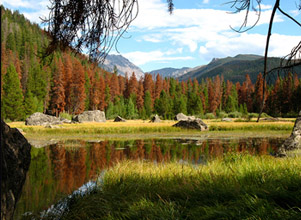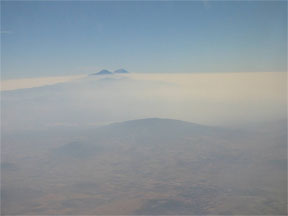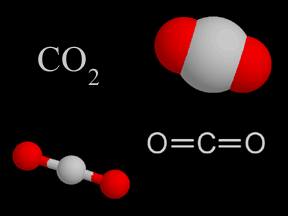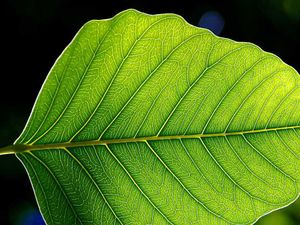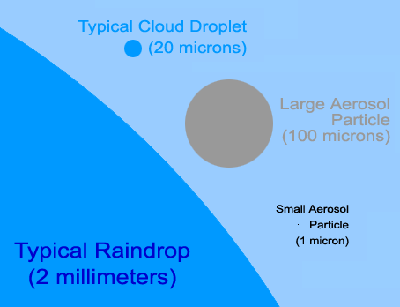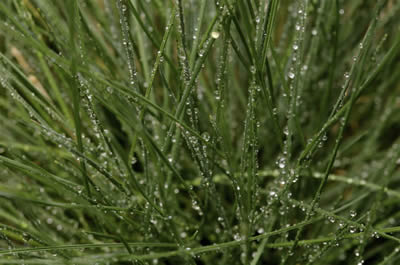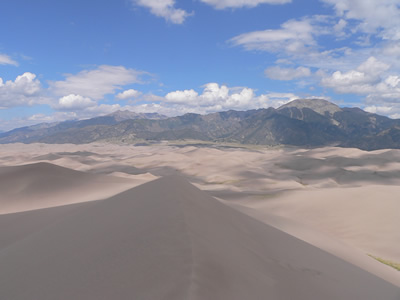Click on image for full size
Carlye Calvin / UCAR
Can Dying Trees Change Weather and Climate?
News story originally written on September 24, 2008
A team of scientists is exploring how forest trees affect weather, air pollution, and climate change. They are studying the forests of the southern Rocky Mountains that are being devastated by pine beetles to understand how fewer trees will impact the region.
Using instruments on airplanes, instruments on the ground, and computer models, scientists at the National Center for Atmospheric Research (NCAR) will study interactions between forests and the atmosphere in the southern Rockies.
The pine trees in this region's forests are being killed by pine beetles. The beetles, which are the size of a grain of rice, eat the bark of pine trees. In large numbers they have the ability to destroy forests. While pine bark beetles are a natural part of this ecosystem, over the past few years the number of beetles has grown rapidly. They are spreading into areas that used to be beetle-free like high altitude mountains. Scientists believe the beetles are overrunning the area in part because of increased temperatures and drought.
Like all plants, forest trees take in carbon dioxide and release oxygen into the atmosphere through the process of photosynthesis. But they also send water vapor, other gases, and microscopic particles into the air. These gases and particles may be tiny but they can have a big impact. For example, some of the particles released from healthy trees are good spots for water vapor to condense. This forms water droplets in the sky. And lots of water droplets make a cloud. Eventually that cloud can become so heavy with water that rain falls.
"Forests help control the atmosphere," says NCAR scientist Alex Guenther. He continues, "There's a big difference between the impacts of a living forest and a dead forest." Scientists suspect that weather and air quality is changing as forests are destroyed by the beetles.
Climate can be affected too. Trees killed by pine beetles release the heat-trapping greenhouse gas carbon dioxide (CO2), into the air. Combined with the CO2 released into the air from burning fossil fuels, this causes more global warming. Also affecting climate, the dead trees have low albedo so they do not reflect as much of the Sun's heat back into space. The scientists' work suggests that the beetle-killed trees could warm the area about 2-4 degrees Fahrenheit.


